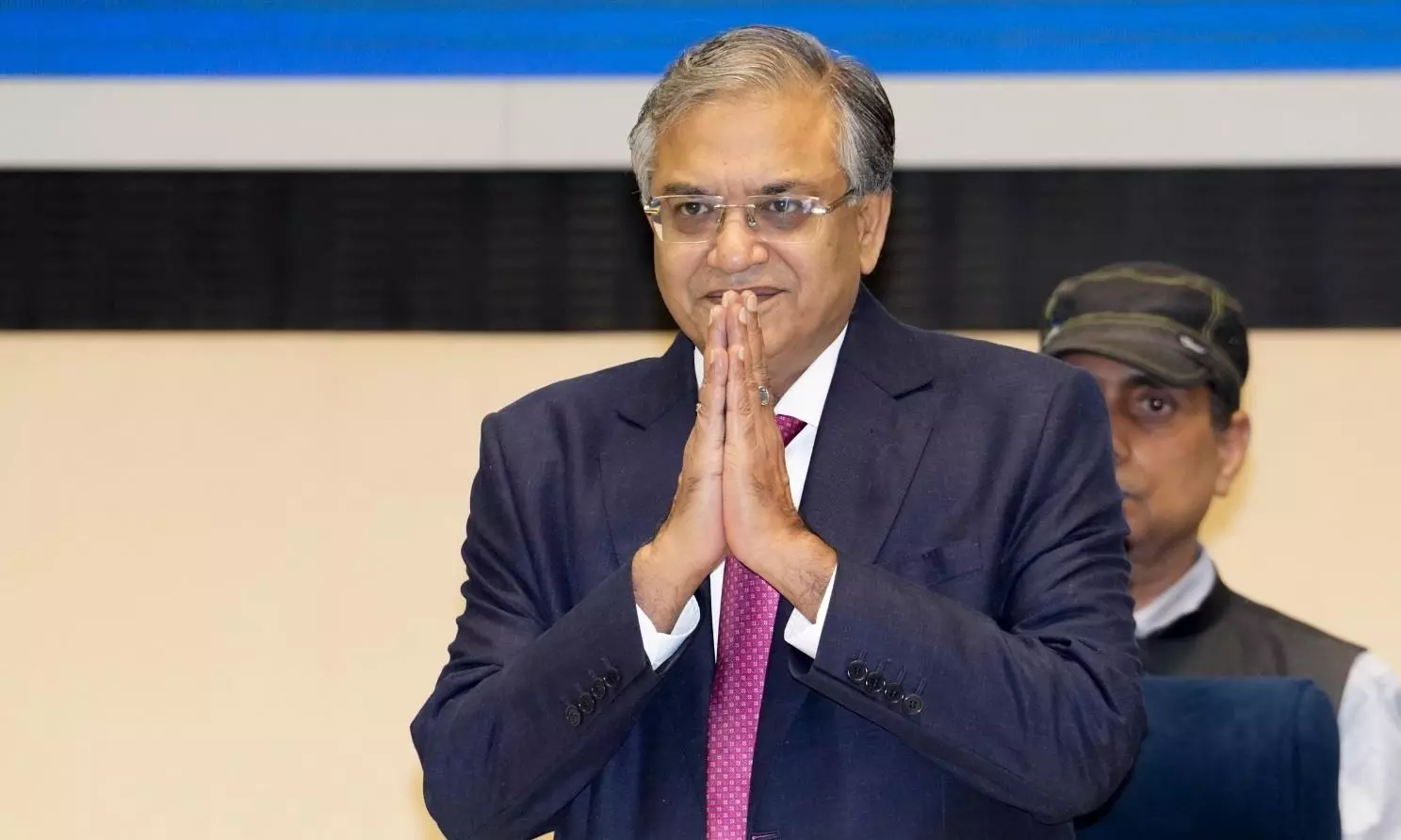
- Home
- India
- World
- Premium
- THE FEDERAL SPECIAL
- Analysis
- States
- Perspective
- Videos
- Sports
- Education
- Entertainment
- Elections
- Features
- Health
- Business
- Series
- In memoriam: Sheikh Mujibur Rahman
- Bishnoi's Men
- NEET TANGLE
- Economy Series
- Earth Day
- Kashmir’s Frozen Turbulence
- India@75
- The legend of Ramjanmabhoomi
- Liberalisation@30
- How to tame a dragon
- Celebrating biodiversity
- Farm Matters
- 50 days of solitude
- Bringing Migrants Home
- Budget 2020
- Jharkhand Votes
- The Federal Investigates
- The Federal Impact
- Vanishing Sand
- Gandhi @ 150
- Andhra Today
- Field report
- Operation Gulmarg
- Pandemic @1 Mn in India
- The Federal Year-End
- The Zero Year
- Science
- Brand studio
- Newsletter
- Elections 2024
- Events
- Home
- IndiaIndia
- World
- Analysis
- StatesStates
- PerspectivePerspective
- VideosVideos
- Sports
- Education
- Entertainment
- ElectionsElections
- Features
- Health
- BusinessBusiness
- Premium
- Loading...
Premium - Events

As EC seeks ‘Pure Electoral Rolls', Assam’s NRC legacy and Bengal’s charged political landscape could trigger bigger struggles over identity and voter legitimacy
Satisfying the suspicious by allaying all doubts about the process and intention of the Special Intensive Revision (SIR) of electoral rolls is impossible.
At best, the revised process — after the teething problems of the beta version rolled out in Bihar — that is being used in 12 states and Union Territories, will provoke less tempestuous criticism from the political Opposition, comprising mega national parties and powerful regional parties as well as smaller parties representing niche communities of voters.
The Election Commission (EC) cannot, or rather ought not to, guarantee that the elaborate and updated version of SIR will be, as it claims, 'Pure Electoral Rolls' that will “Strengthen Democracy”. With three-time house-to-house verification of voters, the online search provision, simplification of who will require to provide documents for verification of existence as voters back in 2002-2004, when the last SIR was conducted, what the EC could have reasonably assured Indians is that no eligible voter will be left out.
Why no SIR in Assam
If it had indeed chosen to reassure voters who will make their choices in state Assembly elections that are scheduled for 2026 and 2027 that no eligible person will be excluded, then the exclusion of Assam from the list of states undergoing SIR is a problem.
First, Chief Election Commissioner Gyanesh Kumar should have made a suo motu statement on the exclusion of Assam from the list of states and Union territories. He should not have required prompting by a question at a press conference to explain the exclusion.
Second, Kumar should have thought harder about why the EC decided to keep Assam off the list. There are two ways of interpreting Kumar’s reason for Assam’s exclusion. In the considered view of the EC, it may be that the listing of citizens under the National Register of Citizens (NRC) supersedes and eliminates the process of including the eligible in the voter roll revision.
By explaining that the Assam SIR cannot be done now because the NRC process is underway, the EC seems to have assumed that the NRC can do its job of voter verification and inclusion, or Pure Electoral Rolls.
Or, the NRC and the SIR are interchangeable and one can be substituted by the other to verify the eligibility of a voter.
Also read: SIR 2.0 sparks nationwide row: Opposition cries foul, BJP calls it clean-up drive
By explaining that the Assam SIR cannot be done now because the NRC process is underway, the EC seems to have assumed that the NRC can do its job of voter verification and inclusion or Pure Electoral Rolls. It would also mean that the SIR of electoral rolls is another version of NRC.
Political minefield
Assam’s electoral roll revision and redrawing of polling booths is a political minefield. Significant sections of the public in Assam and across India have conflated the political manoeuvrings of the beleaguered BJP-run Himanta Biswa Sarma government with the actions of the NRC and the EC.
Assam’s Opposition parties, civil society groups including the respected Association for Democratic Rights (ADR), headed by Harsh Mander, have accused the EC of allowing itself to be used by the Himanta regime for unscrupulous redrawing of state Assembly boundaries, that is gerrymandering, to manipulate electoral outcomes by redistributing concentrations of Bengali speaking populations, all of whom are presumed in the fervid imagination of the Sarma regime, to be illegal Muslim migrants from Bangladesh.
The presumption that India’s eastern and north eastern states bordering Bangladesh and Myanmar have been inundated by illegal migrants, the ghuspethiyas, in numbers large enough to change the demography of the country is a narrative that the BJP has incrementally expanded over 40 years, ever since the changes to the Citizenship (Amendment) Act (CAA), that were made from 1985 in the context of the creation of Bangladesh and the Assam Accord.
It is, therefore, unsurprising that the EC is fixated on purity as the purpose of SIR 2025-2026 and the West Bengal Chief Electoral Officer (CEO) Manoj Kumar Aggarwal declared on October 28 in the course of the all-party meeting he held in Kolkata that “there will be help desks in every district, along with special help desks in migration pockets.”
Enabling and disabling
By asserting that “no legitimate voter will be eliminated”, Aggarwal made it abundantly clear that his task is not to ensure that every eligible voter is enabled after SIR to vote. On the contrary, his task, as he framed it, is to eliminate the illegitimate voter.
Since the EC does not have the manpower to verify the eligibility of 7.6 crore voters in West Bengal or the 51 crore voters in the 12 states and Union territories where SIR is underway, “volunteers” have been inducted to help out.
Also read: Why parties in Bengal and UP are revolting over SIR 2.0 | Capital Beat
After the furious fight back from Opposition parties in Bihar over the SIR process and the appointment of Booth Level Officers (BLOs) and volunteers, the EC has revised the eligibility norms for BLOs, ensuring that only government employees can be appointed. The BLOs in the SIR process will be assisted by political party appointees called Booth Level Representatives (BLRs), who will be given lists and trained to cross verify.
Advantage TMC in Bengal
The political party with the highest number of competent persons who can function as BLRs is at an advantage compared to other parties with limited human resources. In West Bengal, this gives the Trinamool Congress (TMC) a head start and gives the BJP, as the principal challenger, a headache.
While the TMC has already unrolled its own verification of the voters list and has been on the job for over six months, locking horns with the EC over duplication of names, EPIC numbers and fake addresses, the BJP, has peculiarly opted to bypass the SIR process and has instead set up “CAA camps”.
The flaw in the BJP’s strategy is that its outreach under the CAA camp banner is aimed at Hindus, whereas its narrative targets Muslims as illegal migrants who have changed the demographics of border districts
In the BJP’s universe, CAA camps are a political priority, not the SIR process. The party has clarified that it will concentrate on the districts bordering Bangladesh, where it claims there have been serious demographic changes on account of illegal, that is Muslim, migrants, who have settled in India with documents that were dubiously acquired for building up Muslim vote banks. The TMC in the BJP’s opinion has added lakhs of illegal migrants to the voters list. The SIR will function, in its view, as the detection and clean-up machine.
Also read: SIR in Bengal: EC faces challenges; TMC, Cong question poll panel at all-party meeting
By concentrating its CAA camp outreach efforts in North 24 Parganas, Nadia, Cooch Behar and the two Dinajpur, the BJP has obviously a plan for consolidating its Hindu vote bank from constituencies that have previously voted for it; about 50 per cent of the 77 state Assembly seats it won in 2021 were from these districts.
These districts have concentrations of the Schedule Caste Matua community that the BJP has been able to influence over the past 10 years, by promising to assist them in acquiring citizenship documents.
Turf war for Hindu votes
The strategy of promising citizenship and assisting nervous Hindus fearful of having their legitimacy as citizens disputed by the SIR process has gaps; anyone who admits to having acquired documents like a ration card, voter ID card, Aadhaar, even passports would enter no man’s land while waiting for the CAA process to be completed.
In practical terms, it could mean surrendering thousands of rupees in benefits under state and even Union government schemes, affecting families from participating in the election and leveraging their votes.
The flaw in the BJP’s strategy is that its outreach under the CAA camp banner is aimed at Hindus, whereas its narrative targets Muslims as illegal migrants who have changed the demographics of border districts. The two issues — the inclusion of illegal Hindu migrants and the exclusion of illegal Muslim migrants — raise questions about the size of the illegal Hindu migrant population vis-à-vis the number of similar Muslims.
In West Bengal, the SIR process will certainly convert itself into a political witch hunt, the consequences of which will be long term. Chief Minister Mamata Banerjee has made it clear that “Bengal will resist, Bengal will protect and Bengal will prevail”, because she sees the SIR as a conspiracy by “the Delhi Zamindars” for “spreading lies, stoking panic and weaponising insecurity for votes”.
Less blown away by narrative and more experienced in managing elections in West Bengal, the turf war between the BJP and the TMC will be waged over Hindu votes in border districts.
(The Federal seeks to present views and opinions from all sides of the spectrum. The information, ideas or opinions in the articles are of the author and do not necessarily reflect the views of The Federal.)


